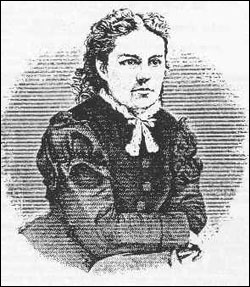|
Evangelical And Ecumenical Women's Caucus
The Evangelical and Ecumenical Women's Caucus (EEWC), also known as Christian Feminism Today (CFT), is a group of evangelical Christian feminists founded in 1974. It was originally named the Evangelical Women's Caucus (EWC) because it began as a caucus within Evangelicals for Social Action, which had issued the "Chicago Declaration". Its mission is to "support, educate, and celebrate Christian feminists from many traditions." It favored passage of the Equal Rights Amendment, encourages the ordination of women, and has called for gender-inclusive language in all communications. The word ''ecumenical'' was added to the organization's name in 1990 in order "to reflect the increasingly inclusive nature and the many traditions of he organization'smembership". In 1986 EWC passed a resolution by a two-to-one margin stating: This resolution led Catherine Clark Kroeger and other more conservative members to form Christians for Biblical Equality. Meaning of the Organization's Name The ... [...More Info...] [...Related Items...] OR: [Wikipedia] [Google] [Baidu] |
Evangelicalism
Evangelicalism (), also called evangelical Christianity or evangelical Protestantism, is a worldwide, interdenominational movement within Protestantism, Protestant Christianity that emphasizes evangelism, or the preaching and spreading of the Gospel, Christian gospel. The term evangelical is derived from the Koine Greek word ''euangelion'', meaning “good news,” in reference to the message of salvation through Jesus Christ. Evangelicalism typically places a strong emphasis on personal conversion to Christianity, conversion, often described as being “born again (Christianity), born again,” and regards the Bible as the ultimate authority in matters of Christian theology, faith and practice. The definition and scope of evangelicalism are subjects of debate among theology, theologians and religious studies, scholars. Some critics argue that the term encompasses a wide and diverse range of beliefs and practices, making it difficult to define as a coherent or unified movement ... [...More Info...] [...Related Items...] OR: [Wikipedia] [Google] [Baidu] |
Homosexuality And Christianity
Christianity developed during the 1st century AD as a Jewish Christian sect and, as such, many of its views were rooted in Jewish teaching. As Christianity established itself as a separate religion, with its own scriptures, some views moved away from the Jewish roots while others remained firmly grounded in Jewish tradition. The view within Christianity is that the Jewish scriptures within what became known as The Old Testament, as well as passages within what became known as The New Testament, both make clear that same-sex sexual behaviour is sinful – an interpretation supported by the wording of certain translations of the Bible. Today, most denominations teach that homosexual behavior and acts are sinful, and both the Eastern Orthodox Church and the Catholic Church officially condemn homosexual activity as sin. However, some mainly liberal denominations, churches and individuals hold views that differ from traditional interpretations and some of the mainline Protestant de ... [...More Info...] [...Related Items...] OR: [Wikipedia] [Google] [Baidu] |
Protestant Feminism
Protestantism is a branch of Christianity that emphasizes Justification (theology), justification of sinners Sola fide, through faith alone, the teaching that Salvation in Christianity, salvation comes by unmerited Grace in Christianity, divine grace, the priesthood of all believers, and the Bible as the sole infallible source of authority for Christian faith and practice. The five solae, five ''solae'' summarize the basic theological beliefs of mainstream Protestantism. Protestants follow the theological tenets of the Reformation, Protestant Reformation, a movement that began in the 16th century with the goal of reforming the Catholic Church from perceived Criticism of the Catholic Church, errors, abuses, and discrepancies. The Reformation began in the Holy Roman Empire in 1517, when Martin Luther published his ''Ninety-five Theses'' as a reaction against abuses in the sale of indulgences by the Catholic Church, which purported to offer the remission of the Purgatory, temporal ... [...More Info...] [...Related Items...] OR: [Wikipedia] [Google] [Baidu] |
Feminist Organizations In The United States
Feminism is a range of socio-political movements and ideologies that aim to define and establish the political, economic, personal, and social equality of the sexes. Feminism holds the position that modern societies are patriarchal—they prioritize the male point of view—and that women are treated unjustly in these societies. Efforts to change this include fighting against gender stereotypes and improving educational, professional, and interpersonal opportunities and outcomes for women. Originating in late 18th-century Europe, feminist movements have campaigned and continue to campaign for women's rights, including the right to vote, run for public office, work, earn equal pay, own property, receive education, enter into contracts, have equal rights within marriage, and maternity leave. Feminists have also worked to ensure access to contraception, legal abortions, and social integration; and to protect women and girls from sexual assault, sexual harassment, and do ... [...More Info...] [...Related Items...] OR: [Wikipedia] [Google] [Baidu] |
Evangelicalism In The United States
In the United States, evangelicalism is a movement among Protestant Christians who believe in the necessity of being born again, emphasize the importance of evangelism, and affirm traditional Protestant teachings on the authority as well as the historicity of the Bible. Comprising nearly a quarter of the U.S. population, evangelicals are a diverse group drawn from a variety of backgrounds, including nondenominational churches, Pentecostal, Baptist, Reformed, Methodist, Mennonite, Plymouth Brethren, and Quaker. Evangelicalism has played an important role in shaping American religion and culture. The First Great Awakening of the 18th century marked the rise of evangelical religion in colonial America. As the revival spread throughout the Thirteen Colonies, evangelicalism united Americans around a common faith. The Second Great Awakening of the early 19th century led to what historian Martin Marty calls the "Evangelical Empire", a period in which evangelicals dominated U.S. cul ... [...More Info...] [...Related Items...] OR: [Wikipedia] [Google] [Baidu] |
Evangelical Organizations Established In The 20th Century
Evangelicalism (), also called evangelical Christianity or evangelical Protestantism, is a worldwide, interdenominational movement within Protestantism, Protestant Christianity that emphasizes evangelism, or the preaching and spreading of the Gospel, Christian gospel. The term evangelical is derived from the Koine Greek word ''euangelion'', meaning “good news,” in reference to the message of salvation through Jesus Christ. Evangelicalism typically places a strong emphasis on personal conversion to Christianity, conversion, often described as being “born again (Christianity), born again,” and regards the Bible as the ultimate authority in matters of Christian theology, faith and practice. The definition and scope of evangelicalism are subjects of debate among theology, theologians and religious studies, scholars. Some critics argue that the term encompasses a wide and diverse range of beliefs and practices, making it difficult to define as a coherent or unified movement ... [...More Info...] [...Related Items...] OR: [Wikipedia] [Google] [Baidu] |
Christianity And Society In The United States
Christianity is an Abrahamic monotheistic religion, which states that Jesus in Christianity, Jesus is the Son of God (Christianity), Son of God and Resurrection of Jesus, rose from the dead after his Crucifixion of Jesus, crucifixion, whose coming as the Messiah#Christianity, messiah (Christ (title), Christ) was Old Testament messianic prophecies quoted in the New Testament, prophesied in the Old Testament and chronicled in the New Testament. It is the Major religious groups, world's largest and most widespread religion with over 2.3 billion followers, comprising around 28.8% of the world population. Its adherents, known as Christians, are estimated to make up a majority of the population in Christianity by country, 157 countries and territories. Christianity remains Christian culture, culturally diverse in its Western Christianity, Western and Eastern Christianity, Eastern branches, and doctrinally diverse concerning Justification (theology), justification and the natur ... [...More Info...] [...Related Items...] OR: [Wikipedia] [Google] [Baidu] |
Christian Women's Organizations
A Christian () is a person who follows or adheres to Christianity, a monotheistic Abrahamic religion based on the life and teachings of Jesus Christ. Christians form the largest religious community in the world. The words ''Christ'' and ''Christian'' derive from the Koine Greek title (), a translation of the Biblical Hebrew term ''mashiach'' () (usually rendered as ''messiah'' in English). While there are diverse interpretations of Christianity which sometimes conflict, they are united in believing that Jesus has a unique significance. The term ''Christian'' used as an adjective is descriptive of anything associated with Christianity or Christian churches, or in a proverbial sense "all that is noble, and good, and Christ-like." According to a 2011 Pew Research Center survey, there were 2.3 billion Christians around the world, up from about 600 million in 1910. Today, about 37% of all Christians live in the Americas, about 26% live in Europe, 24% live in sub-Saharan Africa, ab ... [...More Info...] [...Related Items...] OR: [Wikipedia] [Google] [Baidu] |
Christian Egalitarianism
Christian egalitarianism, also known as biblical equality, is egalitarianism based in Christianity. Christian egalitarians believe that the Bible advocates for gender equality and equal responsibilities for the family unit and the ability for women to exercise spiritual authority as clergy. In contrast to Christian complementarianism, complementarianists and Biblical patriarchy, Christian patriarchists, proponents of Christian egalitarianism argue that Chapters and verses of the Bible, Bible verses often used to justify patriarchal domination in Gender role, gender roles are misinterpreted. Egalitarians believe in a form of mutual submission in which all people submit to each other in relationships and institutions as a code of conduct without a need for hierarchy, hierarchical authority. Gender equality Christian egalitarianism refers to a biblically-based belief that gender, in and of itself, neither privileges nor curtails a believer's gifting or calling to any ministry in the ... [...More Info...] [...Related Items...] OR: [Wikipedia] [Google] [Baidu] |







